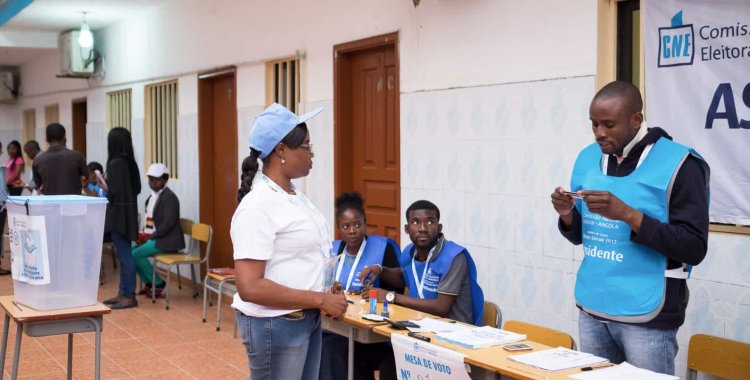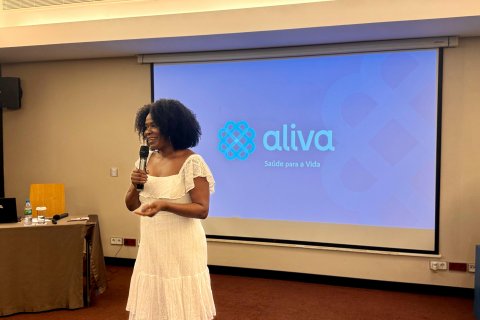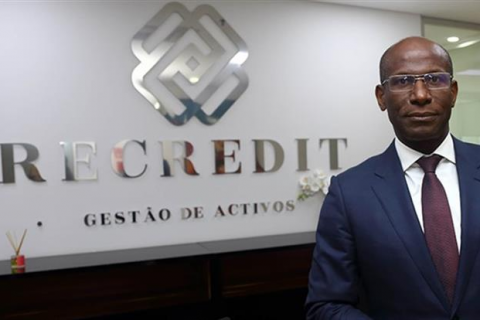The former president of Cape Verde, Jorge Carlos Fonseca, who is heading the CPLP observation mission in Angola, met this Friday with the candidate of the Popular Movement for the Liberation of Angola (MPLA) João Lourenço, at the headquarters of the party in Luanda.
"This is a different visit, with another outfit, with other clothes [he was in Angola last year, as president of Cape Verde at the XIII Conference of Heads of State and Government of the Community of Portuguese-Speaking Countries that took place in Luanda]" , said Carlos Fonseca, after the meeting, showing his appreciation for the invitation addressed to the CPLP for another electoral observation mission to a member country, in this case Angola.
"We will do our best to contribute to our measure and with the limits we have so that the Angolan electoral process takes place with democratic normality, whether it is the electoral campaign, the scrutiny and the counting of results, things go smoothly, with normality and that the results reflect a genuine will of the Angolans", he said.
For Jorge Carlos Fonseca, these elections mark the path that Angola has taken in the sense of "consolidating democracy and perfecting and improving the democratic rule of law".
As for the expectations, they are that the elections will take place "with tranquility within an environment of civility", despite being competitive and disputed.
"All democratic elections always have some political trickery that is part of democratic competition, but we are optimistic and convinced that things will proceed normally and that, in the end, the results whatever they may be will be accepted by everyone, democratically, in so that Angola continues to follow paths of increasing progress, material and not only, for the good of all Angolans", he exhorted.
The former Cape Verdean head of state highlighted that the fact that eight political groups competed "is a sign of the vitality of Angolan democracy and a sign of interest of the Angolan political forces in the destiny of Angola" and that "the fundamental thing is that the electoral campaign, in the confrontation, in the normal dissent in democracy" takes place calmly and without violence.
"I believe that is what has happened and there must be conditions for everyone to express their positions, make their programs and ideas known, so that all Angolans can choose what they consider the best option for their country", said.
Jorge Carlos Fonseca said that this was his first meeting, as he arrived this Friday morning, but he will meet with other entities such as the National Electoral Commission (CNE) and other leaders of other political organizations.
"It will be a marathon of meetings so that the mission fulfills its electoral observation mission, which is a witness to what the electoral process is here in Angola", he reinforced, explaining that the mission will not validate votes or correct electoral processes and not It has nothing to do with how the tables work.
"We observe according to certain rules, we take into account the legal and other rules of the country that holds the elections, we verify and in the end we produce a report that is our assessment of the electoral process of what we can observe", he stressed.
Jorge Carlos Fonseca also mentioned that the last minute events in Guinea-Bissau could compromise the travel of some observers who would integrate the Portuguese-speaking mission.
"We will be here with a mission that, in principle, will have 34 observers", said Fonseca, admitting that this number could change due to "some last-minute problems with representatives of Guinea-Bissau".
Jorge Carlos Fonseca explained that the largest number of observers will be concentrated in Luanda, but they will also be in other provinces such as Bengo, Cuanza Norte and Sul, following the final phase of the electoral campaign, the voting process and the tabulation of results.
"The CPLP does not work for a long time, it observes the final part of the campaign, the voting processes, the scrutiny and the tabulation", he said, adding that the mission will remain in Angola until 27 August.
This is the time "that we deemed adequate to have an objective assessment, so that we have time to articulate with other observation missions from other bodies such as the SADC [Southern African Development Community], the African Union or the European Union", he justified.
According to the former head of state, the focus is this: "We cannot escape the limits of the nature of this mission, we cannot interfere in matters or issues that have nothing to do with electoral observation, they are rules".
On what was discussed with the MPLA candidate, he said that "there are no secrets" and that he discussed the electoral process with João Lourenço.
"I gave him information about what the mission intends to do, the number of members of our mission, how we are going to work, the distribution by provinces. We exchanged impressions about the electoral agents", he revealed.
"I am here at the invitation of the CPLP, but I am a former head of state of Cape Verde who has very friendly relations, a lot of fraternity with Angola, I know President João Lourenço well who is now a candidate and we exchanged some impressions, essentially exchanging information", added Jorge Carlos Fonseca.
The general elections, the fifth ballot in the country's political history, are scheduled for August 24th and have candidates from eight political formations, which have been campaigning since July 24th.
Angola, Brazil, Cape Verde, Guinea-Bissau, Equatorial Guinea, Mozambique, Portugal, São Tomé and Príncipe and Timor-Leste are the nine member states of the CPLP.







